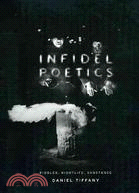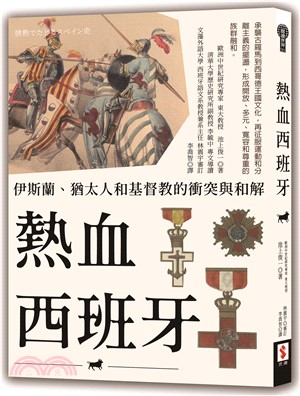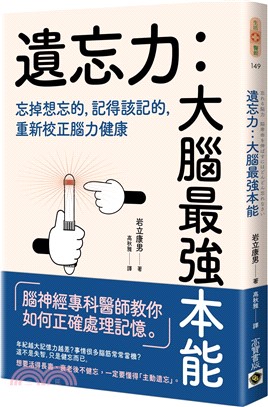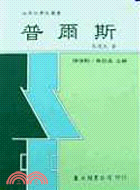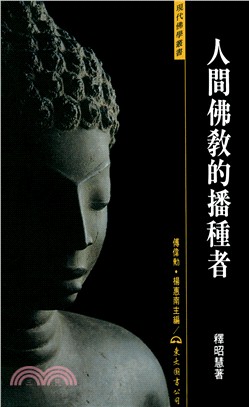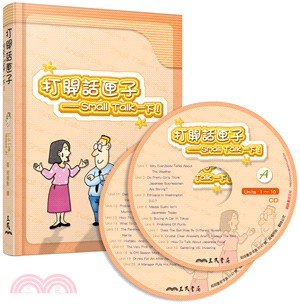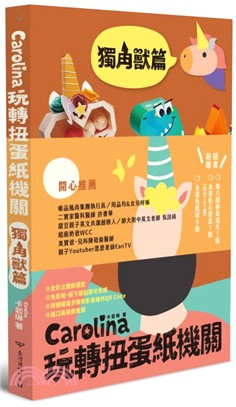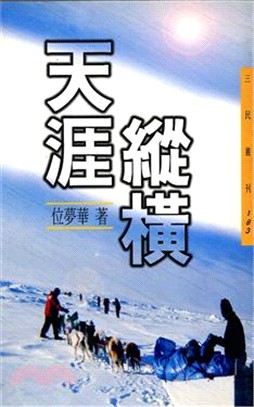商品簡介
“Simply to say Daniel Tiffany’s newest book is a worthy successor to his Toy Medium would be high praise indeed, but would fail to suggest how the particular brilliance of Infidel Poetics engages the delightfully dark truths of its subject with wit, erudition, and a rare kind of intellectual and emotional sympathy. Tiffany’s engagement with the darker eloquence of the enigmatic realms makes for a constantly surprising and deviously enlightening adventure.”—Bin Ramke, University of Denver “Daniel Tiffany is brilliant about the obscure, illuminating poetry and thinking where they are richest: on the boundaries of understanding. There, riddles remain impenetrable, substance remains impermeable, and the heart of life itself remains just outside the space clearly illuminated by reason, in what Tiffany splendidly terms ‘nightlife.’ Tiffany exemplifies what the best critics since Coleridge have understood: that literary reflection is a spiritual discipline on the boundaries of methodological enlightenment, demanding enormous erudition, but also, indispensably, an openness to thinking as event. The delightful elegance and unpredictability of Tiffany’s writing reminds me of one of the great seventeenth-century thinkers Coleridge admired, Sir Thomas Browne. If you think ‘theory’ is dead or that criticism in the grand style can no longer speak to our times, you must read Infidel Poetics.”—Gordon Teskey, Harvard University “Obscurity in poetry is often seen as a failure of meaning or, worse, an elitist riposte to mass culture. Daniel Tiffany turns the concept of poetic obscurity on its head by seeing it as constitutive of community and social relations. And where literary historians trace the cultivation of obscurity to the Romantic poets, Tiffany looks back to a far longer history of lyric obscurity as a symptom of social alienation and epistemological obscurity—from Parmenides’ fragments to Leibniz’s monads to the Jena romantics to Heidegger’s logos to queer theory. In this superb book, Tiffany studies ‘infidel poetries’—riddles, nursery rhymes, signifying rituals, curses, chants, and the canting songs of the underworld—as an often unacknowledged, demotic vein in poetics. The breadth of scholarship in poetics and philosophy is dazzling and the larger implications of the book for the ideology of literary form are profound.”—Michael Davidson, University of California, San Diego “Can we learn about the substance and the powers of poetry from the history of nightclubs, of urban lighting, of mathematically-inclined philosophers, of urban pickpocketry? Is lyric poetry obscure by nature, a road to nowhere, an open secret, a conspiracy, a counterfeit? Yes, says Daniel Tiffany, and he means it: his account of the substance, or darkness, of poetry stops in Shakespeare's England, in Mallarme's France, in Holderlin's Germany, and in more obscure locations, to build up its case that poetry has been, can be, perhaps even ought to be a turncoat, a creature of thieves' cant, and of the dance floor: from the pre-Socratics to Villon's jargon to a Vorticist cabaret, 'Orpheus could not turn his back on the underworld.' Here is the rare work of 'theory' and history that might inspire, not only the making of more theory, and the reading of more history, but the creation of new poems.”—Stephen Burt, Harvard University “Among the many contributions to the recent revival of interest in Leibniz’s writings, none is more searching, none more scintillating, and none more consistently disorienting than Daniel Tiffany’s Infidel Poetics, which not only shows how the idea of the monad illuminates certain forms of hermetic poetry but also gives insight into the rationale—the infinitely fine ‘logic’—that governs the production of poetry as such.”—Peter Fenves, Northwestern University “Daniel Tiffany is a rarity in our times: a thinker’s thinker who writes with the grace of a poet and the clarity of a scientist. Daring, lyrical, and insightful, Infidel Poetics will change the way you think you see the world.”—Chris Abani, author of Virgin of Flames “Daniel Tiffany's Infidel Poetics is a thrillingly original series of essays on the interrelation of seemingly disparate realms that turn out—under Tiffany's quirkily brilliant eye—to be essentially related; it will be important not just to readers of the particular texts under discussion (Emily Dickinson, say) but to readers of a range of literature, from Classical Greek to contemporary avant-gardes, who will see their own subjects in revealing and surprising new light. Tiffany takes his place next to Virginia Jackson and Marjorie Perloff in setting a new direction for the entire critical discourse in the field.”—Craig Dworkin, University of Utah
作者簡介
Daniel Tiffany is the author of five books of poetry and literary criticism, including Toy Medium: Materialism and Modern Lyric (named one of the "Best Books of 2000" by the Los Angeles Times) and the forthcoming Dandelion Clock. In addition, he has published ?
translations of works from French, Greek, and Italian. His poems have appeared in Tin House, Boston Review, and the Paris Review, and his critical essays on poetry and poetics have been published in Critical Inquiry, PMLA, and Modernism/Modernity.? He has held residencies at the MacDowell Colony and the Karolyi Foundation in France and been the recipient of a Whiting Fellowship. He teaches at the University of Southern California in Los Angeles.
主題書展
更多書展本週66折
您曾經瀏覽過的商品
購物須知
外文書商品之書封,為出版社提供之樣本。實際出貨商品,以出版社所提供之現有版本為主。部份書籍,因出版社供應狀況特殊,匯率將依實際狀況做調整。
無庫存之商品,在您完成訂單程序之後,將以空運的方式為你下單調貨。為了縮短等待的時間,建議您將外文書與其他商品分開下單,以獲得最快的取貨速度,平均調貨時間為1~2個月。
為了保護您的權益,「三民網路書店」提供會員七日商品鑑賞期(收到商品為起始日)。
若要辦理退貨,請在商品鑑賞期內寄回,且商品必須是全新狀態與完整包裝(商品、附件、發票、隨貨贈品等)否則恕不接受退貨。



